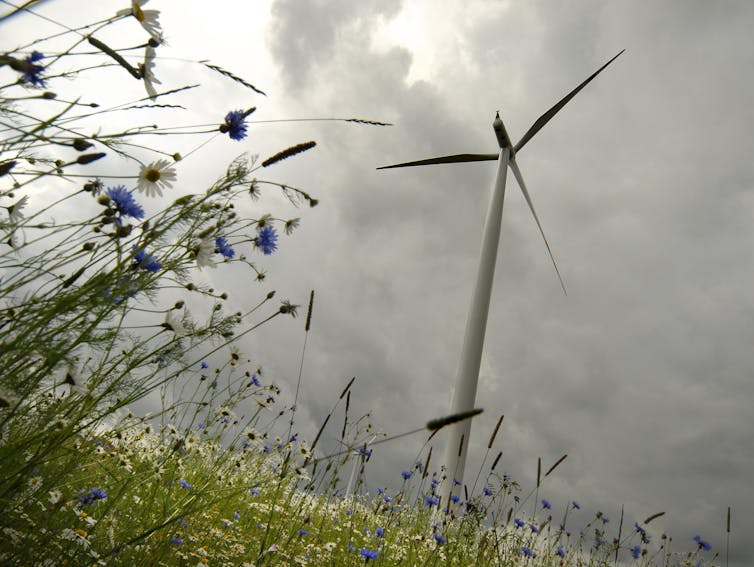This week, US President Donald Trump gave a live address on prime-time television where he repeatedly used the words “violent,” “illegal aliens” and “crisis” to arouse public fear. While Trump’s speech was based largely on fallacies, his fear-mongering shapes the national tone and can generate real-world impacts.
Words matter because they wield power. Words shape our thinking about the world and, in turn, the actions we take. The meaning of words has never been more relevant than now—in the era of “fake news”—when so-called alternative facts abound.
Environmental words can also be misinterpreted or misused. In the most sinister cases, language can be put to work to promote particular agendas and silence others.
Remember “beautiful clean coal?” The Trump administration used the term as the backbone for the continued development of the fossil fuel industry. At the same time, it systematically removed the words “climate change” from federal websites, a measure aimed at undermining climate action.
Power can be expressed through environmental buzzwords. They are used to influence policy direction, funding and produce norms that become entrenched in their meaning around the world. Motivated by this idea, our recent research explores the meaning of three environmental buzzwords—resilience, sustainability and transformation. Meaning influences the way we understand environmental problems and shapes the solutions we prioritise—or don’t.
The rise of resilience
Let’s begin with “resilience.” Over the past decade, resilience has increasingly become a rallying cry in the face of climatic change. Resilience has many meanings, from the time it takes to bounce back from a disturbance to more complex interpretations that consider the capacity to persist, adapt or transform in the face of change.
“
Meaning influences the way we understand environmental problems and shapes the solutions we prioritise—or don’t.
Evidence shows that individuals, even those who share demographic characteristics or professions, interpret resilience in very different ways. These differences matter and can have implications on real-world actions.
When considering policy and planning related to flooding, for example, understanding resilience as bouncing back can lead to decisions to focus solely on infrastructure investments, while a more complex interpretation may lead to a decision to relocate a vulnerable subdivision away from a floodplain.
The rise of resilience as a buzzword has also led to its prominence in agendas put forward by organisations looking for funding often without a clear intention or accountability.
Sustainability for whom?
The concept of “sustainability” has dominated environmental thinking since the publication of the influential essay “A Blueprint for Survival” in 1972. The notion of sustainability rests upon the idea that we are obligated to future generations and ought to live in a way that preserves natural resources and environments so that our children and grandchildren can enjoy them.
The underlying idea is that we have the technological and scientific know-how and power to achieve this goal. And this definition of sustainability centres on humans. Asking “what is sustainability and who is it for?” may lead to a surprising shift in this thinking.
An alternative perspective on sustainability raises new questions: Must we work toward preserving natural environments for ourselves? Is it justified to work toward preserving a species that is harmful to itself and others — like we have been?

Privileging the well-being of other species over our own—by significantly reducing our use of highly polluting natural resources—may help to slow climate change, for example. This requires, however, a radical shift in our thinking, displacing the human from the centre of our preoccupations.
Clearly our know-how has not prevented the acceleration of the environmental crisis. Rethinking ourselves as beings that are deeply interconnected with our habitats and those we share it with, as post-humanist thinkers do, could lead to redefining the notion of sustainability and what constitutes an appropriate course of action. Significantly, this new vision of sustainability may not always favour the human.
The dark side of transformation
“Transformation” is increasingly seen as a solution to many of our planet’s profound environmental and social challenges. For example, the United Nations uses the term transformation in its Agenda for 2030 to describe radical shifts towards more environmentally sustainable and socially just futures.
In contrast, transformation has also been used by struggling political parties to rebrand failing platforms (essentially selling old wine in a new bottle).
There are risks associated with misappropriating “transformation”. Put to wrong use, it can conceal harmful business-as-usual scenarios, exclude the possibility of resistance, pay scarce attention to inequality, overlook the role of power or shift the burden of response onto vulnerable parties.
For example, a recent report commissioned by the United Kingdom for policy-makers presents climate migration as a positive “transformational” strategy that “will be an extremely effective way to build long-term resilience.” Yet, we know that forced migration can be devastating for climate refugees.
So, what now?
No one owns the meaning of words. Yet it’s essential to keep in mind that language is never neutral: it conveys and shapes values, attitudes and intent. This subtle power is particularly troubling now when false and politicised headlines tend to be shared more often than factual ones.
The words we use (and the meanings we ascribe to them) become public truths that set the context for environmental policies, funding and interventions. Closer to home, the recent standoff between members of the Wet’suwet’en First Nation and the RCMP is stimulating reflection on the meaning of the term “self-governing.”
Achieving genuinely equitable futures will require each of us to read carefully, think critically and guard against the manipulation of environmental words. As governments and institutions across the world struggle to implement environmental policies and make important decisions on climate change, we would do well to reflect critically on the meaning of the words that inform these processes and be transparent about their multiple interpretations and resulting impacts.![]()
Jessica Blythe is assistant professor, Environmental Sustainability Research Centre at Brock University; Christine Daigle is professor of philosophy at Brock University, and Julia Baird is assistant professor and Canada research chair in Human Dimensions of Water Resources and Water Resilience at Brock University. This article is republished from The Conversation under a Creative Commons licence.













